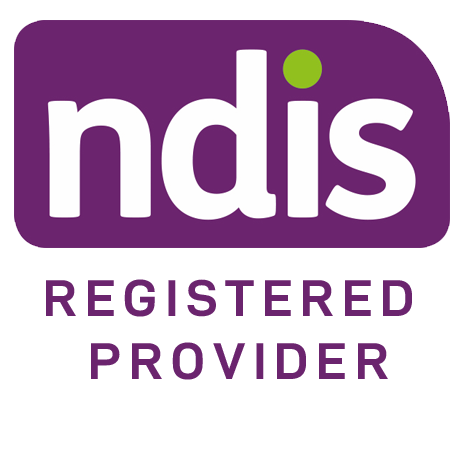It can be difficult to determine how to qualify for the National Disability Insurance Scheme (NDIS), but having a checklist makes the process easier for the person with disability, their family, and their carrer.
Here, you read a simple checklist that will help you conduct an NDIS support plan for your eligibility.
What is NDIS?
The National Disability Insurance Scheme (NDIS) funds and supports people with disabilities, their families, and careers. NDIS is designed to assist individuals with disabilities.
- Improve their quality of life.
- Increase their independence.
- Get help obtaining new skills, jobs, or volunteering opportunities.
- Getting involved with community-based services
- Spend More Time with Family and Friends
The NDIS is also known to offer necessary assistance for people who have permanent or significant disabilities, impeding them from taking part in everyday actions. The NDIS is also focused on early intervention and will aim to lessen the impact of disability on individuals themselves as well as their children they may have.
NDIS funds are a lifetime investment in disability support and early intervention for people for better outcomes later on.
Who is eligible for NDIS?
NDIS eligibility checklist:
1. Residency Requirements:
However, one must meet certain residency requirements to access NDIS support. They need to:
- Must be an Australian citizen, permanent resident of Australia, or have a valid visa to reside in Australia.
- Reside in Australia.
2. NDIS age limit:
The NDIS aims to participate in the age group of 9-65 years. However:
- Any child under nine years old is eligible for a different approach to early childhood development in cases of developmental disabilities.
- Others who are over 65 years old and do not receive funding under the NDIS can benefit from other government-funded aged care services.
- Once you are an NDIS participant before reaching the age of 65, you can continue availing of services depending on your needs.
3. Disability Criteria:
You need to be disabled in a significant and permanent manner, and the disability must have an impact on your daily life, for which you must need a personalised service.
The NDIS defines a disability as:
- Permanent Impairment: A lifelong ailment that will impact your existence for the rest of your days. This may be inherited at birth or due to some damage that occurs while the child is still growing or even after growth has occurred.
- Functional Impact: This is the disability that would prevent the individual from handling imperative and regular tasks effectively alone. These are mobility, communication, self-care, interpersonal relations, and learning.
- Need for Support: To be labelled as requiring help to undertake activities and use services that others without disability can easily accomplish, you need help.
These are the disability requirements to get NDIS support services.
NDIS Medical Conditions Qualifications:
There are no definite illnesses for NDIS, but some of the following diseases typically make one eligible for the plan. Some include:
- Severe Physical Injuries: The client’s primary diagnosis of acquired brain injury or other severe physical injury.
- Developmental Disorders: Knowledge of specific diseases—Autistic Spectrum Disorder (ASD), Down Syndrome.
- Cognitive Disorders: Specific diseases: Alzheimer’s Disease, Huntington’s Disease, or other demential diseases.
- Psychosocial Disorders: A serious depressive disorder, bipolar disorder, trauma and stressor-related disorders, schizophrenia spectrum, and other psychotic disorders, and other specified and unspecified brief psychotic disorders.
Musculoskeletal Disorders: Other conditions include chronic backache, arthritis, and joint pain or inflammation.
Sensory or Speech Issues: Sight or hearing impairment.
Neurological Disorders: MS; CP; PD; epilepsy.
- Neurodegenerative Disorders: The second type is muscular dystrophy, which is also a progressive disease that becomes manifest in early childhood and tends to affect many muscles of the body.
- Blood Disorders: For example, sickle cell disease and haemophilia are scientifically knitted to the category of genetic diseases, but culturally or socially speaking, they are completely different.
Immune System Disorders: HIV/AIDS, lupus, rheumatoid arthritis, chronic kidney disease.
How your disability supports are determined?
NDIS, as a disability service scheme of the Australian government, aims at enhancing social participation and independence of candidates with disabilities. It is based on the principles of individual support plans for a person and is oriented on goals that the particular individual wants.
Assessment and Application Process
The National Disability Insurance Agency (NDIA) will carry out the assessment to see whether one qualifies for it. This process involves:
- Determining the understanding and how the disability affects the daily life.
- Most importantly, they need to know the amount of support needed.
Premier Home Care: Top NDIS Disability Service Provider
Premier Home Care will see through you the complexity of the NDIS application. We have a productive relationship with the NDIA to coordinate and offer specialised advice to determine and adhere to the entry requirements.
Our dedicated team is here to help you:
Such as
- Ensuring that you qualify for the lending institutions’ requirements before approving a loan.
- Receive full-service NDIS plan management.
- Seek help for your particular wants.
That means you receive the resources and assistance relevant to your particular circumstances, making your experience of the NDIS less daunting.
In Summary:
The purpose of the NDIS is to improve the lives and long-term outcomes for Australians with a disability, especially young people, including children. Meeting residency, age, and disability criteria will help determine if this all-important assistance is for you. With Premier home care services, individuals get support on their journey through services with greater confidence so that personal goals can be achieved while lessening barriers.



